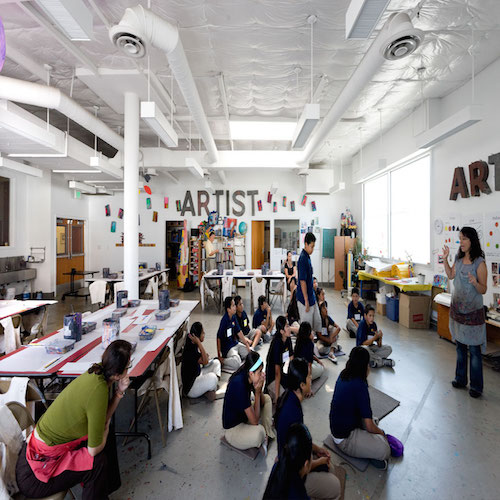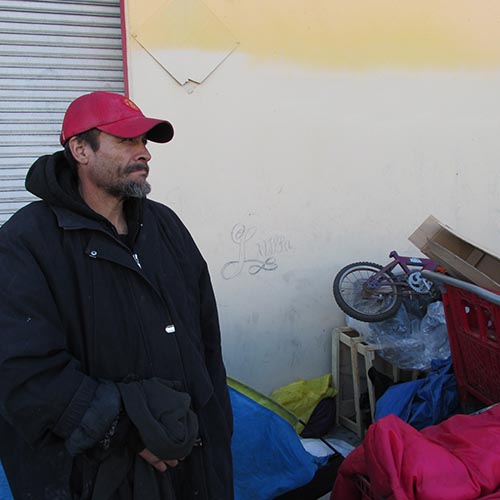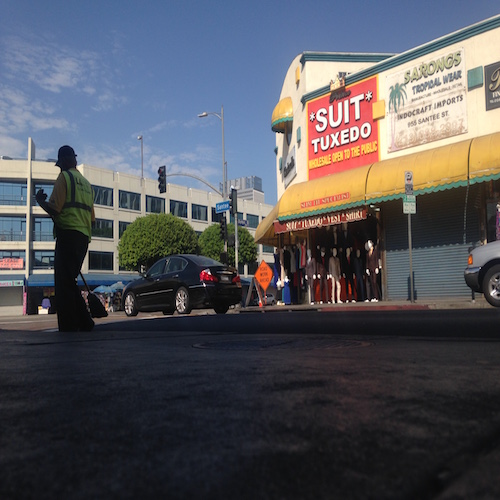
Niños del Cielo, Inc., based in the heart of the Fashion District of Los Angeles, is a program dedicated to providing resources and support for the families of children with disabilities.
The company was founded in 2002, and is a "Home Based Early Intervention Childhood Program," a statewide system of services for children under the age of three.
Elizabeth Villanueva, a child development specialist and founder of Niños del Cielo, said that the process to help these infants is thorough and organized.
"We have one of our specialists go to the child’s home and do play-based learning therapy sessions to encourage stimulation in crucial development," she said.
Play-based learning helps children learn and express themselves in a positive environment, according to Nudia Cimelli, a communications administrator at the U.S. Department of Developmental Services.
"It’s an effective way to develop behaviors that are normal for a young child, especially if the child struggles with emotional or social skills," she said.
Cimelli said that play-based learning therapy also can help positive cognitive development and can often be a way to understand the thoughts of a child who cannot put their feelings into words.
Those six areas of development that the company’s specialists focus on include cognitive and problem solving, language and communication, self-care, social play, fine-motor skills (coordination in small muscles, such as the fingers and toes) and gross-motor skills (larger movement in the arms, legs or entire body).
Villanueva said that it is important to understand what a disability entails before determining whether a child is eligible for the program. The U.S. Census Bureau defines a disability as "having vision, hearing, cognitive, ambulatory, self-care, or independent living difficulty."
According to data gathered by the U.S. Census Bureau in 2010, about 3.5 percent of children between the ages of 5 and 17 residing in the Los Angeles area are living with a disability.
Although Los Angeles has schools that specialize in special needs education, Niños del Cielo focuses more on providing resources.
"In a city as big as Los Angeles, there is a good number of children that need special care. Often, the parents are worried and don't know how to handle the situation," she said.
"Here at Niños del Cielo, we want to make the process easier. We want these families to feel like they have a place to come for support and for answers," she continued.
A few of the many services provided are physical therapist consultations, developmental assessments, and help with applying to financial resources such as the In-Home Supportive Services program.
Villanueva also has video tutorials on YouTube that show parents different at-home activities and strategies that they can use with their child.
For example, one video explains how making collages dedicated to an emotion—such as a collage with pictures of smiling people to portray "happiness"—can allow a child to become aware of and understand emotion.
Villanueva demonstrates how a simple arts and crafts activity can promote positive development.
"I made these videos with the hope that parents can feel like they can do something important to help their kids. You don’t need to be a doctor or a therapist to do your part in the positive development of a special needs child," she said.
Niños del Cielo currently has 15 specialists and works with about 40 families.
Marc Julio, an administrative assistant at Niños Del Cielo, said that one of the many reasons people should know more about the company is the credibility of its staff.
"All of our specialists have college degrees and are required to attend monthly training. Yes, of course, they are all first aid certified," he said.
Furthermore, Julio expressed that, most importantly, special education is a topic people should learn more about.
"We're lucky to live in a country where there are options for these children to live as normal a life as possible. People just don't care though. They don't want to put in the time to understand these children and see the potential, and I think that's really sad," he said.
"I think these kids are capable of great things. I truly do," he said.


